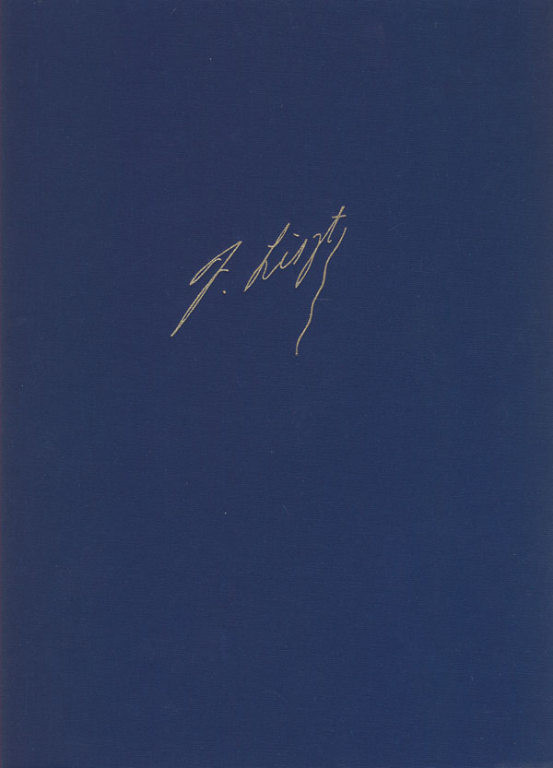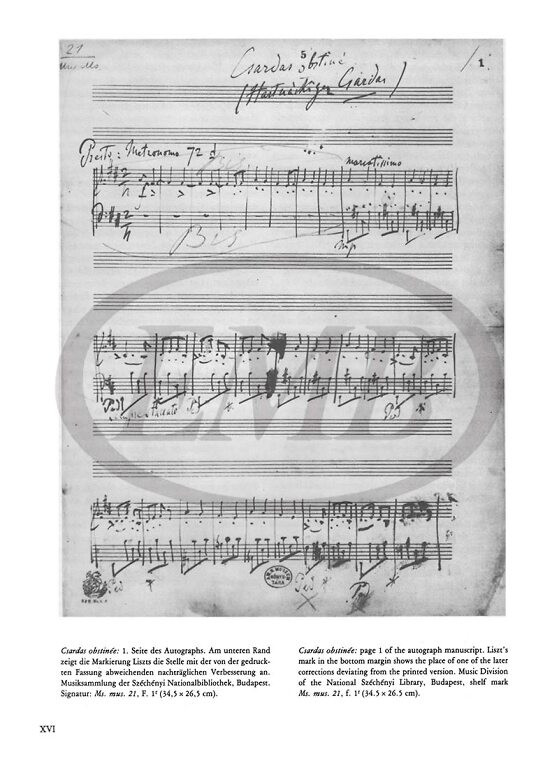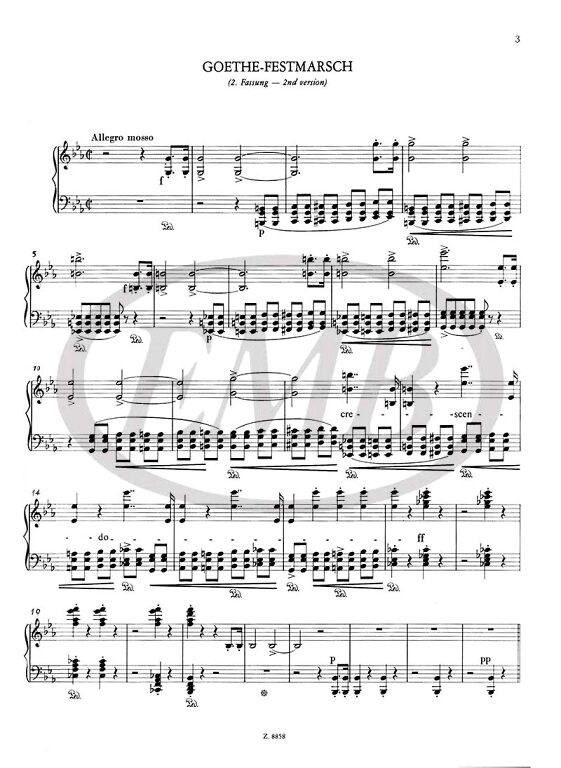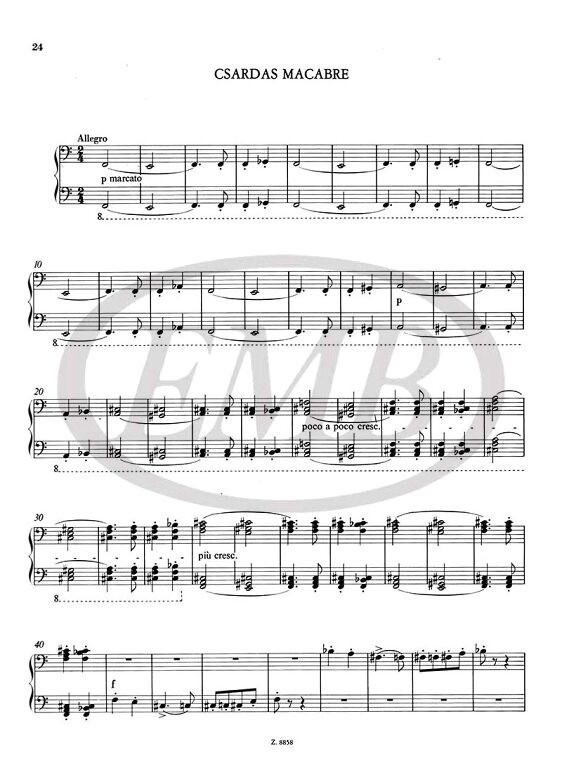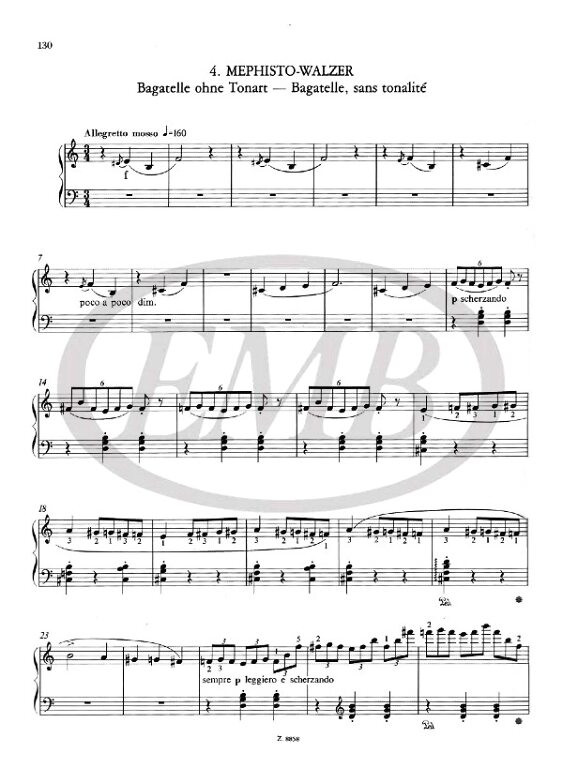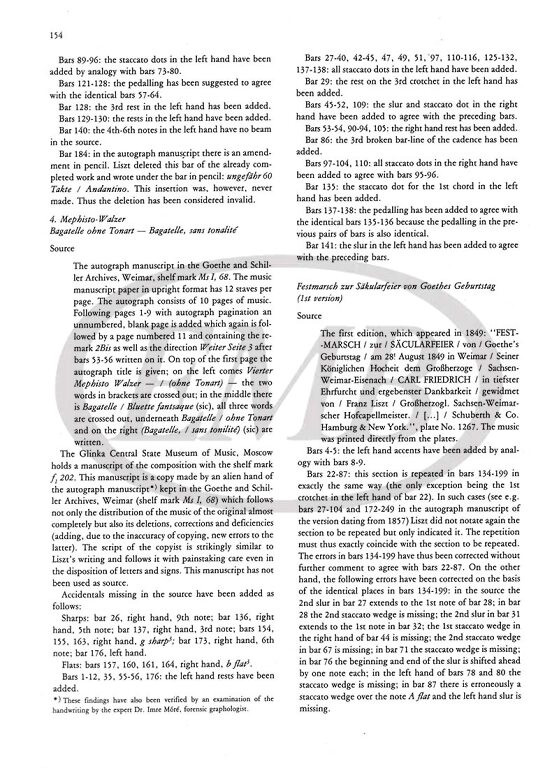Description
Liszt Ferenc: Dances, Marches and Scherzos II (I/14) / Edited by Sulyok Imre, Mező Imre / Editio Musica Budapest Zeneműkiadó / 1984 / Közreadta Sulyok Imre, Mező Imre
Paperback
Made in Hungary
Setting: Piano
Series: New Liszt Edition I. 'A'
Genre: Complete Edition
Period: Romantic
Language: English, German
Length: 160 pages
Format: 23 x 30 cm
Published: 1984
Publisher: Editio Musica Budapest Zeneműkiadó
Item number: 8858A
ISMN: 9790080300145 / 979-0080300145
Hangszer/letét: Zongora
Sorozat: Liszt Ferenc összes műveinek új kiadása I. (vászon) 'A'
Műfaj: Összkiadás
Korszak: Romantikus
Nyelv: angol, német
Terjedelem: 160 oldal
Formátum: 23 x 30 cm
Első megjelenés: 1984
Kiadó: Editio Musica Budapest Zeneműkiadó
Katalógusszám: 8858A
Volumes I/13-14 of the New Liszt Edition contain dance pieces, marches, and scherzos. As far as possible, in the volumes the pieces are given in chronological order. The works in volume 14 were composed over a period spanning 35 years, with the earliest written in 1849, and the latest in 1885. Liszt wrote the Ungarischer Geschwindmarsch (Hungarian quick march) in 1870 in Szekszárd, where, with minor breaks, he spent the months from August to November.
In the footnotes, as well as editorial comments we give the performance indications that August Göllerich noted down in 1884-86, when he took piano lessons from the composer.
As customary, there are two versions of the publication: a blue clothbound edition and a grey softcover edition. The preface, which gives the most important information on the contents and technical details, is identical in both versions, but only the former includes an English description of the sources and a critical commentary. Both versions include a facsimile of a page of Liszt's original autograph manuscript.
Az Új Liszt-Összkiadás I/13-14. köteteiben táncdarabok, indulók és scherzók kaptak helyet. A darabokat a kiadványokban lehetőség szerint időrendben közöljük. A 14. kötetben található művek keletkezési ideje több mint 35 évet ölel fel, a legkorábbi 1849-ben, a legkésőbbi 1885-ben keletkezett. Az 1870-ben keletkezett Ungarischer Geschwindmarsch (Magyar gyors induló) című darabot Liszt Szekszárdon írta, ahol kisebb megszakításokkal ez év augusztus-november hónapjait töltötte.
Lábjegyzetekben a közreadói megjegyzések mellett megadjuk Liszt előadásra vonatkozó utasításait is, melyeket August Göllerich jegyzett fel 1884-86 között, amikor zongoraórákat vett a zeneszerzőtől.
A kiadvány két változata az eddigiek szerint kék vászonkötésben és szürke kartonkötésben jelent meg. A művekről a legfontosabb tartalmi és technikai tudnivalókat ismertető angol és német nyelvű előszó mindkét változatban azonos, míg az angol nyelvű forrásleírásokat és kritikai megjegyzéseket csak az előbbi változat tartalmazza. A kötet elején mindkét változatban Liszt egy eredeti kéziratlapjának hasonmása látható.
Contents / Tartalomjegyzék
|
1. |
Goethe-Festmarsch (2. változat - 2nd version - 2. Fassung) R. 48/b G. 521 |
|
|
|
2. |
Siegesmarsch - Marche triomphale R. 56/a G. 233/a |
|
|
|
3. |
Magyar gyors induló - Ungarischer Geschwindmarsch R. 56 G. 233 |
|
|
|
4. |
Csardas macabre R. 46 G. 224 |
|
|
|
5. |
Premiere Valse oubliée R. 37/1 G. 215 |
|
|
|
6. |
Deuxieme Valse oubliée R. 37/2 G. 215 |
|
|
|
7. |
Troisieme Valse oubliée R. 37/3 G. 215 |
|
|
|
8. |
Vierter vergessener Walzer - Quatrieme Valse oubliée R. 37/4 G. 215 |
|
|
|
9. |
Dritter Mephisto-Walzer R. 38 G. 216 |
|
|
|
10. |
Mephisto-Polka R. 39 G. 217 |
|
|
|
11. |
Bülow-Marsch R. 52 G. 230 |
|
|
|
12. |
2 Csardas 1. Csardas R. 45 G. 225 |
|
|
|
13. |
2 Csardas 2. Csardas obstinée - Hartnäckiger Csardas |
|
|
|
14. |
Vierter Mephisto-Walzer R. 661 G. 696 |
|
|
|
15. |
Vierter Mephisto-Walzer Bagatelle ohne Tonart - Bagatelle sans tonalité R. 60/c G. 216/a |
|
|
|
16. |
Festmarsch zur Säkularfeier von Goethes Geburtstag (1. változat - 1st version - 1. Fassung) R. 48/a G. 227 |
